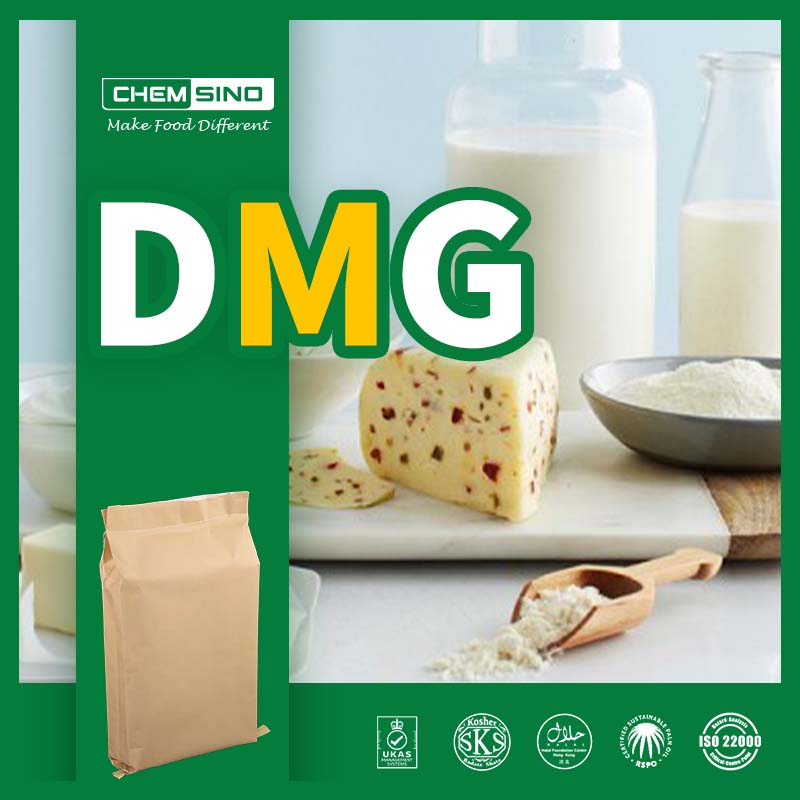Emulsifier In Food: A Complete Guide for Food Enthusiasts
Discover Just How an Emulsifier in Food Can Assist Achieve Completely Mixed Recipes Every Single Time
Emulsifiers are essential active ingredients in the culinary globe, enabling the mixing of oil and water-based components. Their capacity to decrease surface area tension permits for the development of secure blends, enhancing both texture and taste in various meals. Understanding just how these substances feature can transform the way one comes close to cooking. Yet, several remain not aware of the different sorts of emulsifiers and their details applications. Discovering this subject reveals useful insights for achieving culinary excellence.
What Are Emulsifiers and Just How Do They Work?
Emulsifiers play an essential role in the food market by enabling the steady blending of ingredients that usually do not incorporate, such as oil and water. These substances possess both hydrophilic (water-attracting) and hydrophobic (water-repelling) properties, enabling them to interact with both types of components. When an emulsifier is included to a combination, it reduces the surface tension between the oil and water, helping with the development of tiny beads of one fluid spread within the various other. This procedure develops a secure solution, avoiding separation gradually and enhancing appearance and mouthfeel. Emulsifiers are basic in numerous food, from salad dressings to ice lotions, making certain uniformity and quality. They also contribute to the total sensory experience of food, affecting flavor launch and aesthetic allure. Recognizing just how emulsifiers operate is crucial for food researchers and cooks alike, as they venture to produce balanced and satisfying culinary experiences.
Typical Sorts Of Emulsifiers Made Use Of in Cooking
Various sorts of emulsifiers are used in cooking to attain wanted textures and security in different food items. Typical emulsifiers consist of lecithin, which is naturally located in egg yolks and soybeans, and is commonly used in mayo and dressings. One more widespread emulsifier is mustard, which consists of compounds that aid blend oil and water in sauces.
Furthermore, commercial emulsifiers such as mono- and diglycerides are usually included in processed foods to improve their stability and enhance service life. Starch-based emulsifiers, stemmed from corn or potatoes, are also used in gravies and desserts for thickening and structure. Casein, a milk protein, offers as an emulsifying representative in dairy items like cheese and lotion. Each of these emulsifiers plays a crucial duty in making sure that ingredients blend perfectly, providing the desired uniformity and flavor in cooking creations.
The Scientific research Behind Emulsification

The anonymous stability of an emulsion relies upon the equilibrium in between the forces acting upon the spread droplets. If the beads integrate, the solution can break, bring about splitting up. Different aspects, such as temperature, concentration of the emulsifier, and the approach of blending, influence the success of emulsification. Understanding this clinical structure is crucial for attaining constant cause culinary applications entailing emulsions.
Tips for Using Emulsifiers in Your Dishes
When integrating emulsifiers right into dishes, cautious factor to consider of their residential or commercial properties and capability can greatly improve the end product. First, one must select the suitable emulsifier based on the desired structure and stability of the meal. Emulsifier In Food. Usual choices include egg, lecithin, and mustard yolks, each offering one-of-a-kind advantages
It's important to comprehend the temperature at which the emulsifier operates ideal; as an example, some emulsifiers function effectively at room temperature level, while others require heat. Progressively adding oil to the emulsifier while blending can help create a steady emulsion.
Furthermore, the proportion of emulsifier to fluid is vital; as well little might lead to separation, while excessive can create an unwanted structure. Ultimately, proper storage space conditions should be taken into consideration, as some emulsified items may call for refrigeration to preserve stability and freshness. By complying with these suggestions, cooks can attain consistently well-blended dishes.

Delicious Recipes Featuring Emulsifiers
While lots of chefs may not recognize it, integrating emulsifiers into recipes can boost meals to new heights of flavor and appearance. As an example, a timeless vinaigrette advantages substantially from the enhancement of mustard, which functions as an emulsifier, offering a smooth consistency that binds oil and vinegar perfectly. In a similar way, homemade mayonnaise showcases the power of egg yolks, creating a luscious, elegant sauce ideal for sandwiches and salads.
next In cooking, emulsifiers like lecithin can assist attain a tender crumb in muffins and cakes, improving moisture retention. An abundant chocolate ganache, made with hefty cream and chocolate, can likewise incorporate an emulsifier to keep a silky coating. Additionally, gelato commonly utilize emulsifiers to assure a creamy appearance and avoid ice crystal development, resulting in a fascinating dessert experience. By incorporating these emulsifying agents, cooks can develop dishes that delight the taste and offer an enjoyable mouthfeel.
Regularly Asked Inquiries
Are Emulsifiers Safe for People With Food Allergies?
Emulsifiers can be safe for people with food allergies, depending upon the specific emulsifier utilized. Nonetheless, cross-reactivity and individual level of sensitivities vary; as a result, speaking with a medical care specialist is recommended to ensure safety and security.
Can I Make My Own Emulsifier in your home?
Yes, people can develop homemade emulsifiers making use of active ingredients like egg yolks, mustard, or honey. These natural choices can successfully mix oils and water-based elements, supplying a straightforward solution for various culinary applications.
How Do Emulsifiers Affect the Nutritional Value of Food?
Emulsifiers can enhance the nutritional value of food by improving nutrient absorption and stability. However, excessive consumption may lead to adverse results, possibly modifying food digestion procedures and affecting digestive tract health in delicate individuals.


Exist Any Unfavorable Negative Effects of Consuming Emulsifiers?
Some research studies recommend that taking in emulsifiers might lead to stomach issues or interrupt intestine microbiota balance. More research is required to totally understand their long-lasting impacts on wellness and potential negative side impacts.
Can Emulsifiers Adjustment the Taste of My Recipes?
Emulsifiers can subtly change the flavor account of dishes. By boosting texture and mouthfeel, they may make flavors a lot more obvious or well balanced, but they usually do not convey solid preferences by themselves.
Emulsifiers play an important role in the food market by allowing the steady blending of active ingredients that commonly do not combine, such as oil and water. Numerous types of emulsifiers are utilized in food preparation to achieve desired textures and stability in various food items. In addition, business emulsifiers such as mono- and diglycerides are often included to refined foods to boost their security his response and improve rack life. It's necessary to understand the temperature at which the emulsifier works best; for instance, some emulsifiers function properly at area temperature level, while others need warm (Emulsifier In Food). Emulsifiers can be safe for people with food allergic reactions, depending on the details emulsifier made use of